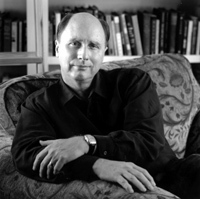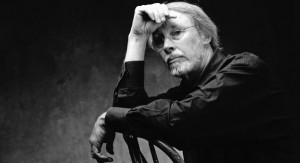Tell me what you want

Robert Olen Butler
Robert Olen Butler, in his book FROM WHERE YOU DREAM, says the one thing missing from almost every student manuscript he reads is a sense, in the beginning of the work, of what the main character yearns for. He says fiction is “the art form of human yearning” and that writers needs to place an epiphany, illustrating the protagonist’s yearning, in the first few paragraphs or pages of a short story or novel.
I agree. As a creative writing teacher, in every class I see emerging writers repeat the same mistakes over and over. The don’t write from the senses, they use FAR too much summary, and not enough scene, and they don’t let me know what their characters want. Heck, if I don’t know what someone wants, how can I care whether they get it or not, or whether getting their heart’s desire will fulfill their lives, or destroy them? And if I don’t care, I’m not going to keep reading.
Then again, what a character wants is often a symbol for something more, isn’t it? In Fitzgerald’s THE GREAT GATSBY Jay Gatsby, for example, wants to win Daisy’s love, but it’s quite obvious that what Gatsby truly wants is what Daisy represents — all that wealth, carefree (careless) attitude, privilege and entitlement. In short, the American dream, albeit one which proves not only shallow and false, but decadent and dangerous.
Jane Eyre may want Mr. Rochester, but what does he represent? Home. Belonging. We know Jane wants these things, because in the opening of the novel the cruel treatment she receives from her aunt and cousins illustrate her sense of alienation, and of being an outcast.
Charles Baxter, the author of many good books indeed (you can see my review of his splendid book, THE ART OF THE SUBTEXT, here) was interviewed for “Glimmer Train” and he said there are five questions a writer asks:
- What do these characters want?
- What are they afraid of?
- What’s at stake in this story
- What are the consequences of these scenes or these actions?
- How does the language of this story reflect the world of the story itself?
He goes on to say:
Charles Baxter
Now, if a writer is writing a story and looks at you and says, “I don’t know what my characters want; I don’t think they want much of anything,” then the story is in trouble. If you don’t know what’s at stake in the story, it means that nothing stands to be gained or lost in the course of it. Something has to be risked. The characters have to want something or to wish for something. They have to be allowed to stay up past eleven o’clock and to make mistakes. If there’s a flaw that many beginning writers have, it is that their characters don’t risk enough. They are just sitting in chairs having ideas. I had a student a few months ago, when I was in residency at a university, who said, I don’t want my characters to do anything, I just want them to think through the problem of nature vs. culture.
That’s not exactly a story, is it? (asks the interviewer)
That’s what I tried to tell her. But she was determined to write a story about issues. I mean, this is an old thing to say, but if you want to write something about issues, write an essay. That’s what essays are for. If you want to see the consequences of ideas, write a story. If you want to see the consequences of belief, write a story in which somebody is acting on the ideas or beliefs that she has. But that’s why it’s important to have a sense of what your characters want.
Aimee Bender, in an essay entitled “Character Motivation” in the book THE WRITER’S NOTEBOOK, takes exception to the comment that you should know what your characters want. She says:
“For many writers, it’s probably a very useful comment , but I find it trips me up, because I don’t always know what a character wants. I know some things about the character, but to know what he or she wants feels like the final answer, why I’m writing in the first place.”

Aimee Bender
Now, my problem with that is that it sounds to me as though she’s writing character sketches. I do a lot of writing before I start writing the actual novel, and much of it is taken up with sketches about character and back-story and motivation and so forth. I do this, so that when I finally sit down and actually start writing the novel/short story, I know what I’m writing about. In short, I know what question I’m asking. In THE STUBBORN SEASON, it was how does someone survive, or not, the tyranny of mental illness? In THE RADIANT CITY, it was, having had a catastrophic disillusionment, is a person doomed to cynicism, or is it possible to maintain a compassionate heart?
From there, I don’t think it’s necessary to provide the reader with the answer to the question, but rather to pose the question, through the sense details of the narrative, so the reader draws his or her own conclusions. And of course, there should always be a way to read the story without being aware the BIG QUESTION is being asked, since such things seem to give some readers headaches. Will, in the case of THE STUBBORN SEASON, Irene escape her crazy mother and find love? Will, in THE RADIANT CITY, Matthew recover from his war wounds and learn to live again?
I do think it’s interesting that Aimee Bender goes on to say:
Whenever I try to think about what my characters want — especially in novel writing — if feels very confusing to me. When I was writing my novel, AN INVISIBLE SIGN OF MY OWN, I asked myself, What does the character want? And the answer was, She wants not to want.
Aha! So, in fact, her character does want something — to be released from desire — and the writer knows what it is. Finding it a confusing process, doesn’t mean you can avoid it.
Look, I agree, we write to find out what we think, to understand what we don’t understand, but still, I contend when we finally sit down to write the novel/short story, and not the prep work for that novel/short story, we have to know what it is we’re writing about, what we’re trying to understand. We do that by placing representative compelling characters, like the dolls we used to play with (or the toy soldiers) on the living room carpet or sandbox, and putting them in situations where they want something, and then we see what happens around them and to them and inside them, when they try and get it.

An image of psychoanalytic sandplay, which could just as easily be a representaton of the writer's process.

Lauren, what a fantastic and inspiring essay! I finally understand the importance of motivation / yearning — thanks for illustrating it so effectively. Kudos once again to you.
Lauren – I thoroughly enjoyed reading this essay. I found it helpful to me as a writer and, as I read it, I realized that this is what I say to my students when they write art criticism or art history essays: that unless they know quite clearly what their main argument/piece of information/stance is, the essay will lose the reader pretty quickly (in this case, the reader is me and the consequence measurable in a grade); that to really know, they need to write drafts; that these drafts will most likely lead them somewhere unexpected; and that this “place” they end up in is probably the beginning of their final, good, engaging version. So, even when writing about “issues,” if we don’t know where we are going, we lose the reader.